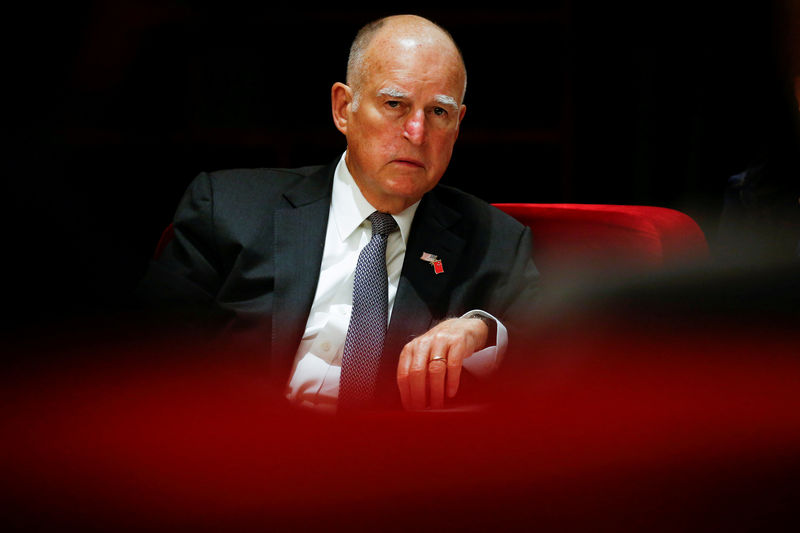Investing.com’s stocks of the week
(Reuters) - California Governor Jerry Brown on Monday signed state legislation requiring drug companies to report certain price hikes for prescription medicines in a move that could set a model for other states to follow.
The law, which aims to provide more transparency around pharmaceutical and biotech company pricing methods for their medicines, requires drug manufacturers to give a 60-day notice if prices are raised more than 16 percent over a two-year period. The law also requires health plans and insurers to file annual reports outlining how drug costs affect healthcare premiums in California.
"Californians have a right to know why their medication costs are out of control, especially when pharmaceutical profits are soaring," Brown, a Democrat, said in a statement on his website announcing the new legislation.
The bill has been opposed by drugmakers, who argue that wholesale price increases do not reflect the actual prices paid for medicines after discounts and rebates.
Biotechnology Innovation Organization (BIO), the leading biotech industry trade group, issued a statement condemning the bill and arguing that it would not serve its intended purpose.
"This law will neither provide meaningful information to patients nor lower prescription drug costs," the group said, adding that the law "seriously jeopardizes the future of California's leadership in this innovative industry."
California is home to hundreds of biotechnology companies.
Pharmaceutical companies have so far dodged stricter federal oversight despite growing public and political outrage over pricing practices for both branded and some generic medicines.
But states, struggling to cover rising healthcare costs, have been addressing the issue rather than wait for federal help. At least 176 bills on pharmaceutical pricing and payment have been introduced this year in 36 states, according to the National Conference of State Legislatures.
A new Maryland law takes aims at egregious price hikes on generic versions of older off-patent drugs that are supposed to be far cheaper than the original branded medicines after some companies took massive increases on generic drugs not facing competition from other distributors.
Amid the furor some drugmakers, including Allergan (NYSE:AGN) Plc and AbbVie Inc (NYSE:ABBV), have voluntarily pledged one annual price increase of under 10 percent on branded prescription medicines. It had been common industry practice to raise prices twice a year, often by double-digit percentages.
However, even annual price hikes of 9 percent over a two-year period would put a company in the crosshairs of the new California legislation.
